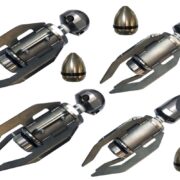For those who are about to start the 1031 exchange process, you’ll soon find that the 45-day window for identification goes by fairly quickly. According to the IRS, there are specific guidelines for what properties you cannot consider for the exchange.
In most cases, you will be unable to use your primary residence. Additionally, the reinvestment must be “like-kind,” which means that the considered property needs to be used for productive use in a business, investment, or trade.
Here are some tips that can help you find the right 1031 exchange property.
Table of Contents
Stick With Properties of Equal or Higher Value
You certainly can identify properties that have a lower value than your current property, however, you’ll end up paying a capital gains tax on the difference between the two properties. In order to avoid paying capital gains tax, it’s in your best interest to identify a property that has a net market value that is either equal to or exceeds the value of the property being sold.
Employ a Qualified Intermediary
We can all agree that 45 days is not a lot of time to identify a new property. In order for things to run as smoothly as possible during this short timeline, you should hire a Qualified Intermediary (QI).
Investors are not allowed to access any sale proceeds during a 1031 exchange. If for some reason you receive money from the sale directly or somehow gain control of the funds throughout the process, you forfeit the chance to do a 1031 exchange entirely. Not only that, but any gains will be taxable.
A Qualified Intermediary acts as a fiduciary through the exchange process. Not only do they hold and protect the sale proceeds, but they also acquire and transfer both the new and the relinquished properties for you.
Whether you are looking for TIC real estate or sole ownership, a Qualified Intermediary is a great resource when it comes to complying with the tax code.
Identify More Than One Property
In order to reduce the risk of a purchase not going through, you are allowed to designate more than one replacement property. Just in case your first choice for a property doesn’t go through, the other properties will act as a reserve. Technically, you can select up to three properties for a 1031 exchange. Just because you identify more than one property, however, it doesn’t mean you have to buy them.
Ensuring that your 45-day window is as stress-free as possible will add to the success of your 1031 exchange. Make sure to hire a QI to help you, seek properties that have equal or higher values than your sold property, and identify more than one property to be on the safe side.













Comments